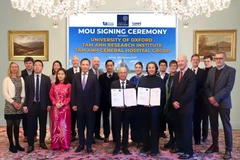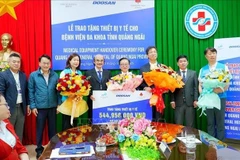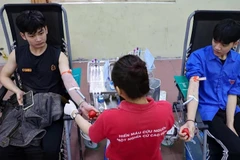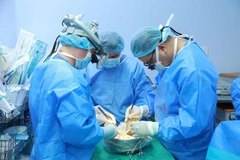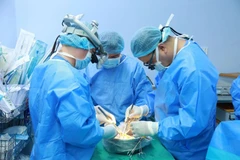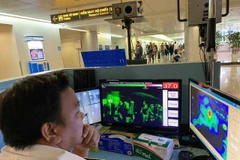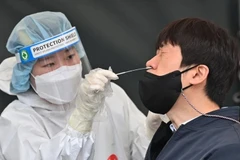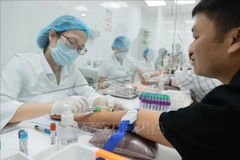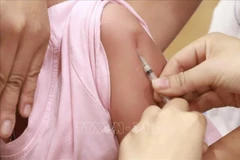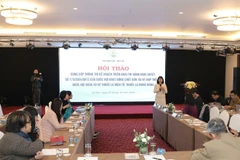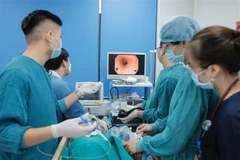Hanoi (VNS/VNA) - Vietnam is striving towardsproducing its own vaccines that can rival foreign ones both in terms of qualityand costs by 2020, said Deputy Minister of Health Nguyen Thanh Long.
To this end, the made-in-Vietnam products must fully"leverage the country’s manpower and natural resources advantages", Longstated as he was addressing a scientific workshop entitled ’Prospects forresearch and development of vaccines for human diseases in Vietnam’, jointlyheld by the Ministry of Health, and the Ministry of Science and Technology in Hanoi this week.
The Prime Minister-approved National Vaccine ProductDevelopment Programme towards 2020 has approved of 11 tasks, which focuson research, production and development of vaccines for human diseases.
Over the last few years, vaccines have proved theirundeniable effectiveness in preventing many diseases, Long said.
Currently, Vietnam produces 10 types of vaccines for humandiseases, of which eight vaccines were used in the National ExpandedVaccination Programme.
Long stressed that Vietnam is actively working on thedevelopment of many more different vaccines against human diseases.
The workshop aimed to review and re-evaluate the process ofimplementing the framework project of the National Vaccine Product DevelopmentProgramme, according to Long. At the same time, it would map out solutions anddirections for the country, towards the goal of the country stocking enoughvaccine supply and ensuring the quality of domestically-manufactured vaccines.
Nguyen Ngo Quang, Deputy Director of the Health Ministry’sDepartment of Science, Technology and Training, said that the ministry approvedthe National Vaccine Product Development Project in 2013, including 12 scienceand technology projects and seven investment projects.
During the 2017- 2018 period, the health ministry has addedthree more science and technology projects. Among 15 approved science andtechnology projects, nine have been implemented. Many projects have yieldedinitial results, including work on Japanese Encaphilitis, polio, Hib andinfluenza vaccines.
Quang said, in the past years, despite many difficultiesrelated to mechanisms, policies and techniques in the field of studying andproducing vaccines, the programme’s projects have achieved satisfactoryresults.
In particular, a project involving the large-scaleproduction of seasonal flu vaccines, hosted by the National Institute ofVaccines and Biologicals, has been verified and delivered excellent result.
Quang proposed that in the future, units under the Ministriesof Health, and Science and Technology need to enhance supervision and implementtasks, handling new problems as they arise.
Particularly, the two ministries should work together topropose the Government extend the national programme’s implementation until2030.-VNS/VNA







